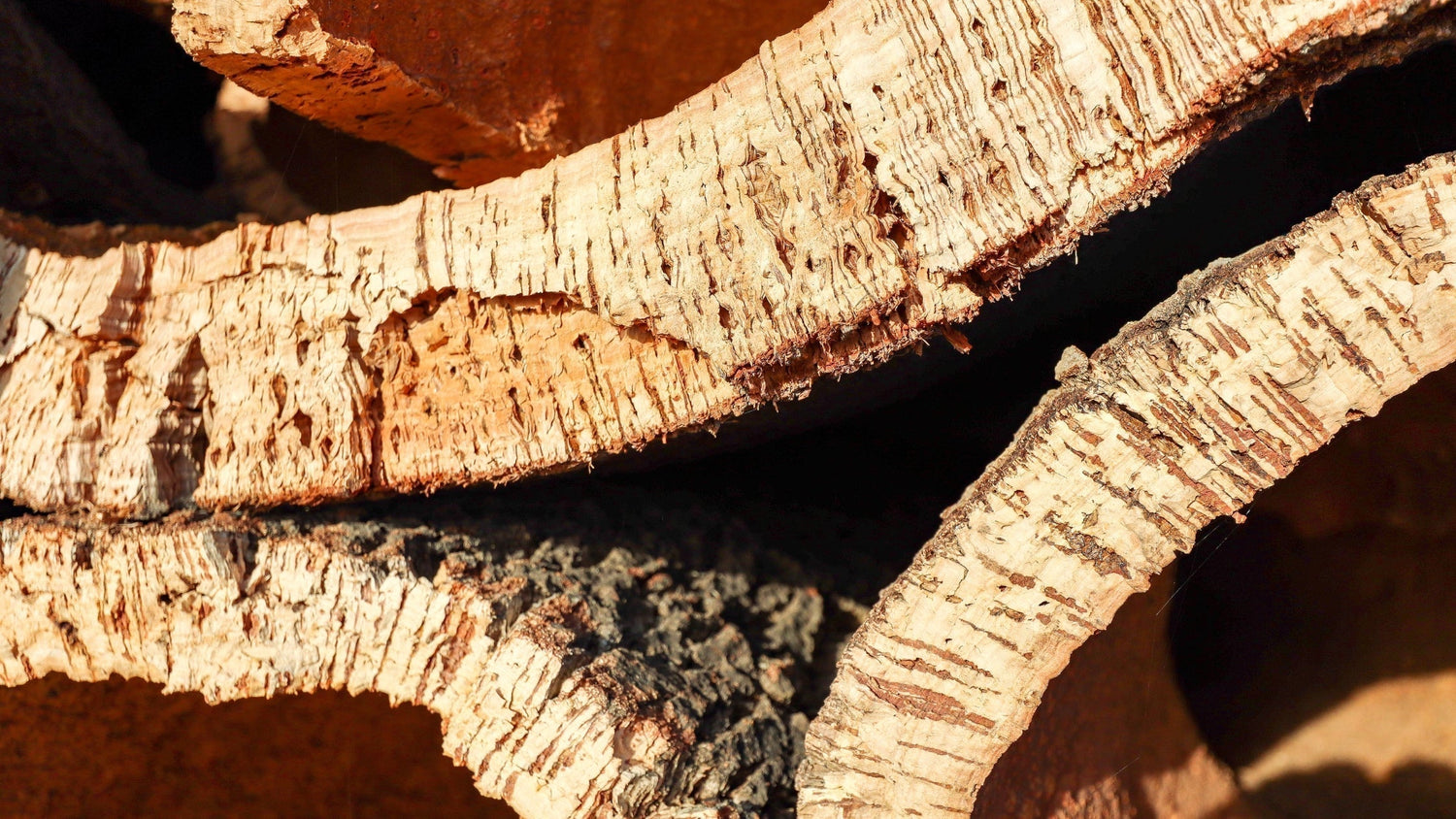Cork is increasingly recognised as one of the most sustainable materials available for homes and businesses. Whether you are searching for eco-friendly flooring, wall coverings, or even bottle stoppers, sustainable cork stands out as a renewable resource with genuine environmental benefits. But just how sustainable is cork, and what role does FSC Certified cork play in ensuring its eco-credentials?
At Portugal Cork, we've created this guide to explain why cork is considered one of the most eco-friendly materials in Australia, how it is harvested without harming trees, and why choosing FSC Certified cork supports both people and the planet.
What is Sustainable Cork?
Cork comes from the bark of cork oak trees (Quercus suber), found mainly in the Mediterranean countries of Portugal and Spain. These trees are part of a unique ecosystem that plays a crucial role in absorbing carbon dioxide and protecting biodiversity.
Unlike timber, cork production does not require cutting down trees. This makes cork a sustainable resource that regenerates naturally and continues to provide environmental benefits throughout its lifespan.
How is Cork Harvested Without Killing the Tree?
Cork is harvested by skilled workers, known as "corticeiros" in Portugal, who remove only the outer bark and leave the tree intact. Over 9 years, the bark regrows, allowing for repeated harvests over the tree’s 200-year life.
This sustainable practice not only preserves cork oak forests but also encourages carbon capture. Studies show that cork trees absorb more carbon dioxide during regeneration, making cork production an active way to ensure a sustainable ecosystem (Biology Insights, 2025).

What Does FSC Certified Mean?
The Forest Stewardship Council (FSC) is a global non-profit organisation that ensures forests are managed responsibly. When a material is FSC Certified, it means the harvesting process meets strict environmental, social, and economic standards.
Can Cork Be FSC Certified?
Yes, many cork products, including flooring, wall tiles, and even yoga mats, can carry FSC certification if sourced from the right supplier. Choosing FSC Certified cork guarantees that the material comes from responsibly managed forests where biodiversity, local communities, and long-term forest health are prioritised.
What is the Most Sustainable Flooring in Australia?
When it comes to sustainable flooring, cork is often considered the gold standard. While materials like bamboo and recycled timber do offer some eco-friendly qualities, cork stands out for being:
-
Renewable – harvested without cutting down trees.
-
Durable – cork flooring is highly durable and long-lasting.
-
Energy efficient – natural thermal insulation reduces energy consumption.
-
Healthy – cork is non-toxic and does not release harmful volatile organic compounds (VOCs).
For Australian homeowners and businesses aiming to reduce their environmental impact, cork is an ideal material that combines functionality, design, and sustainability.
Cork vs Other Materials
When comparing cork to other materials, the differences in health, energy efficiency, and sustainability become clear.
Health Benefits
Unlike some flooring and wall materials that contain synthetic glues, resins, or plastics, cork is a natural, non-toxic material. It does not release harmful VOCs, making it one of the healthiest choices (Sustainability Award, 2025). Its naturally hypoallergenic and antimicrobial properties also reduce allergens, mould, and dust, which is particularly beneficial for asthma or allergy sufferers.
Energy Efficiency
Cork has exceptional thermal and acoustic insulation properties. This means it helps maintain comfortable indoor temperatures year-round, reducing reliance on heating and cooling systems. Its natural acoustic properties also make cork an excellent choice for reducing noise in busy households or commercial spaces.
Compared to timber, vinyl, or tiles, cork is a sustainable alternative that actively contributes to energy efficiency.
Read our article on Cork Flooring Pros & Cons >

Why Cork is 100% Natural, Recyclable, & Biodegradable
Ultimately, cork stands out as a truly eco-friendly material because it is:
-
100% Natural – derived directly from the bark of cork oak trees.
-
Recyclable – cork can be repurposed into a diverse range of cork products, from flooring to insulation.
-
Biodegradable – unlike plastics or synthetic materials, cork naturally breaks down without harming the environment.
At the same time, cork is highly durable. With proper care, cork flooring can last for decades, making it both a sustainable and cost-effective choice.
Make The Sustainable Choice
Cork is more than just a flooring option, it represents a greener future. By choosing FSC Certified sustainable cork you are supporting:
-
The preservation of cork oak forests.
-
Reduced greenhouse gases through natural carbon storage.
-
A renewable resource that respects both people and the planet.
At Portugal Cork Co., we specialise in eco-friendly cork solutions that bring sustainability, style, and comfort into Australian homes and businesses.
Ready to make the green choice? Explore our full collection of sustainable cork flooring and wall tiles today, or contact our team for expert advice.
Frequently Asked Questions
Is cork safe for the environment?
Yes, because cork is harvested without cutting down trees, it is one of the safest and most sustainable natural materials for the environment.
Is cork 100% recyclable?
Absolutely! Cork can be recycled into new products such as flooring, insulation, and even decorative items, extending its life cycle and reducing waste.
Is cork more sustainable than wood?
Yes, because while timber requires felling trees, cork comes directly from the bark of the cork oak tree which regenerates naturally. This makes cork a far more sustainable choice than other materials.
What is the healthiest flooring for a house?
Cork is non-toxic, hypoallergenic, and resistant to mould and mildew. Its lack of harmful VOCs makes it one of the healthiest and most ideal materials for any space.
Does cork flooring help with energy efficiency?
Yes, this is because cork naturally provides thermal and acoustic insulation, helping homes stay warmer in winter and cooler in summer, which reduces energy consumption.





